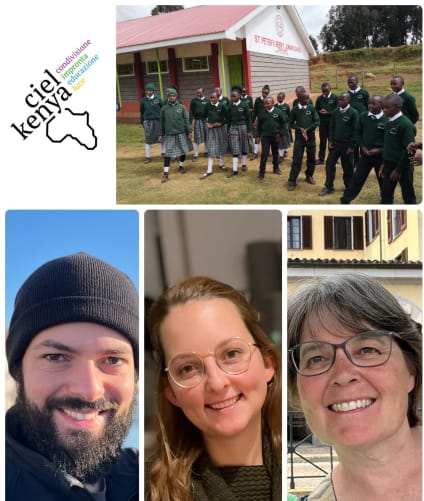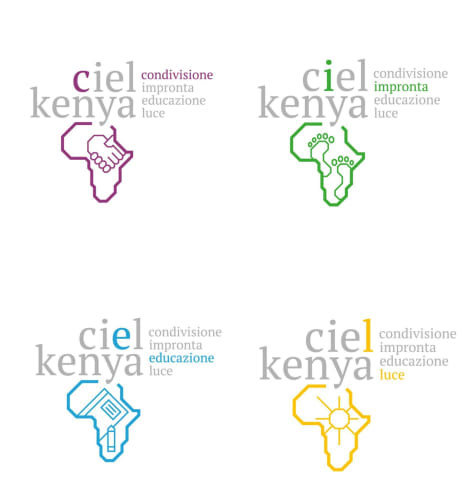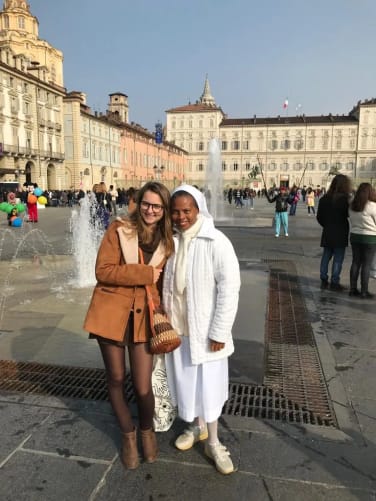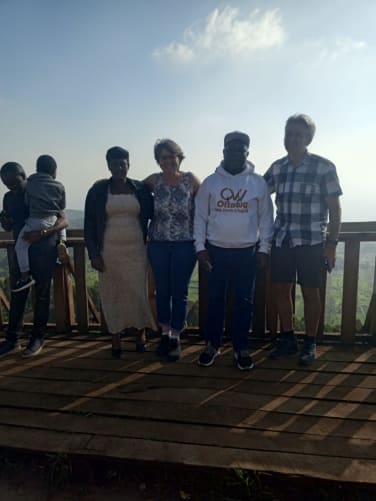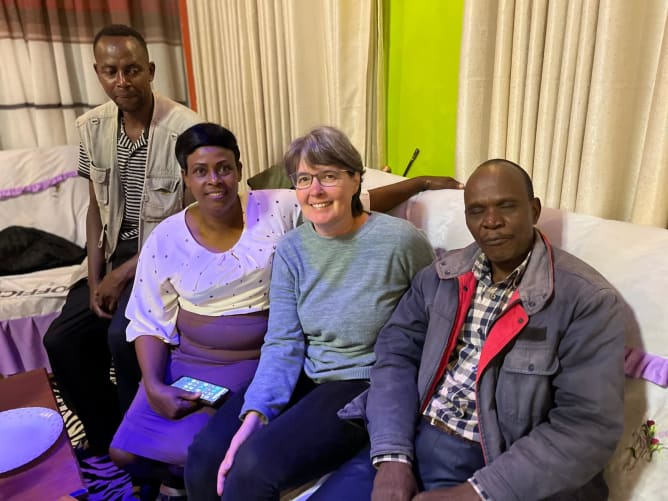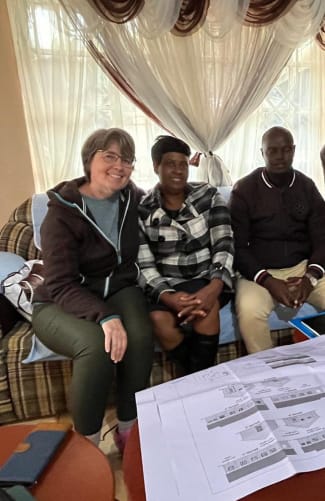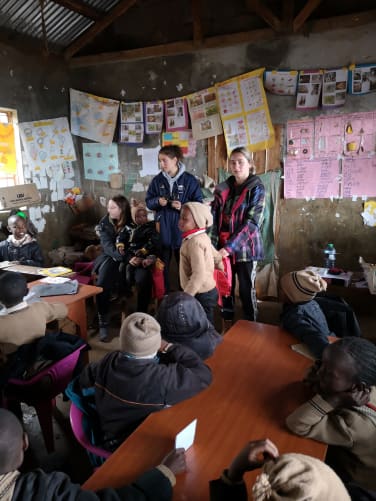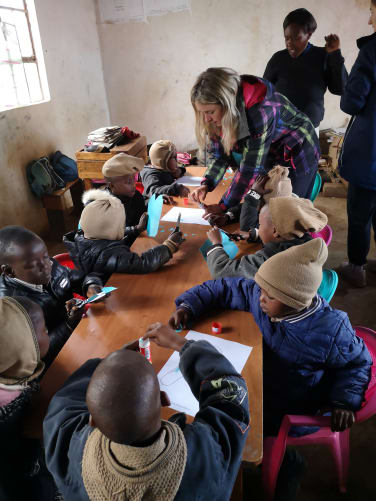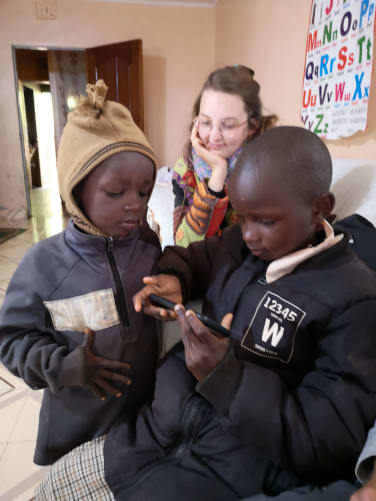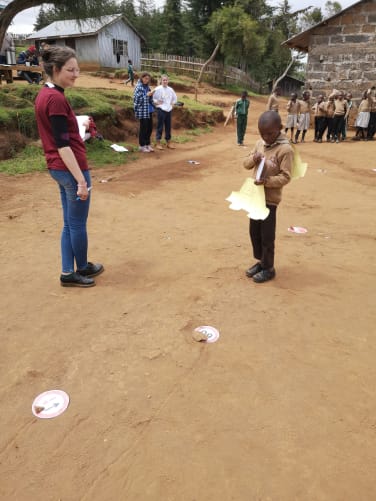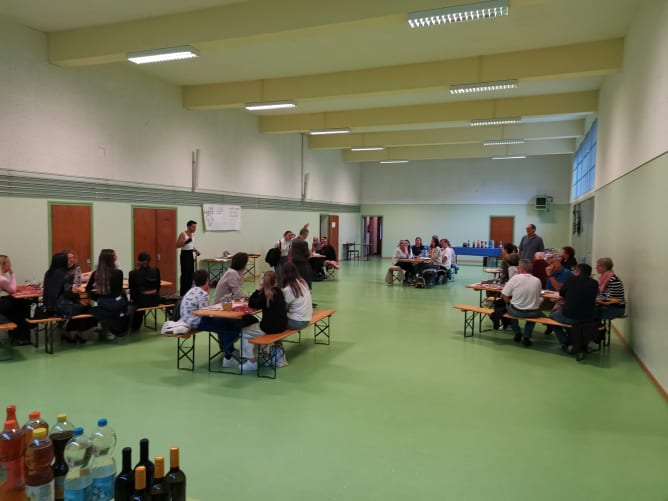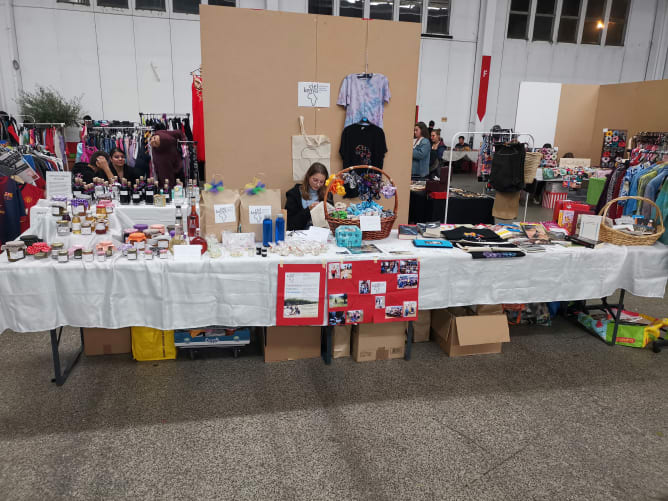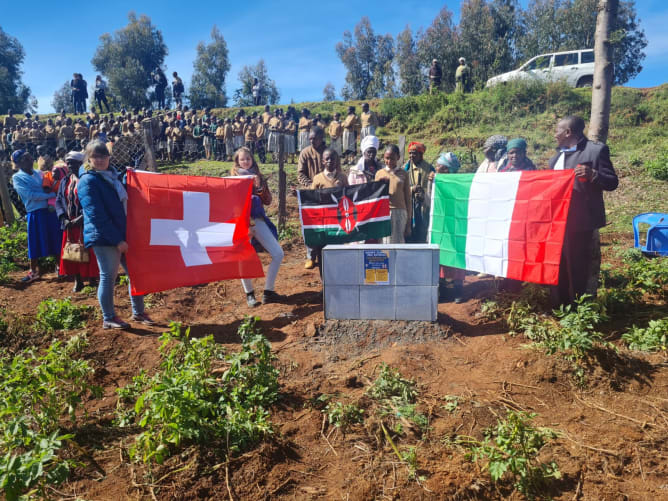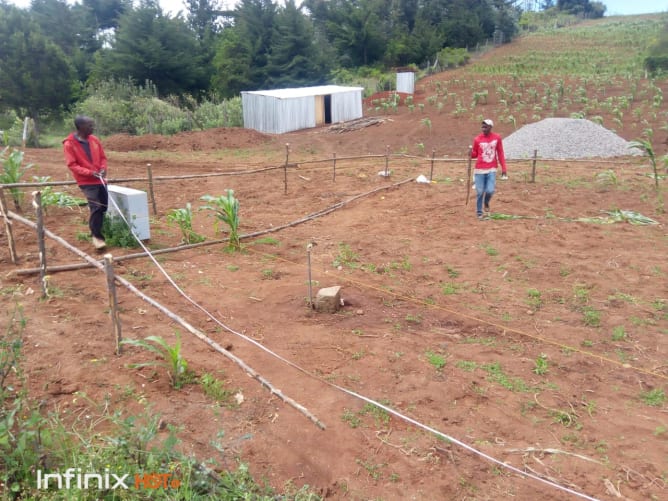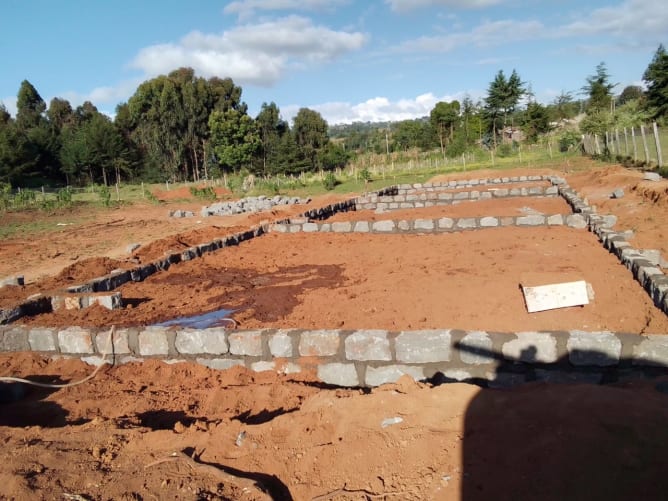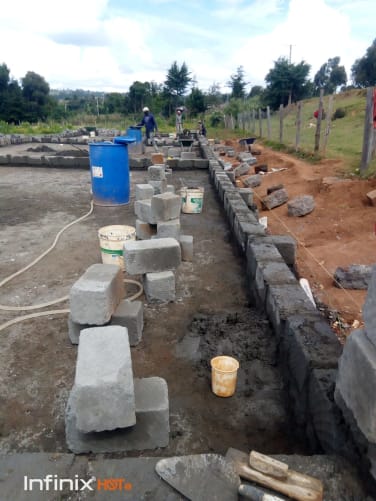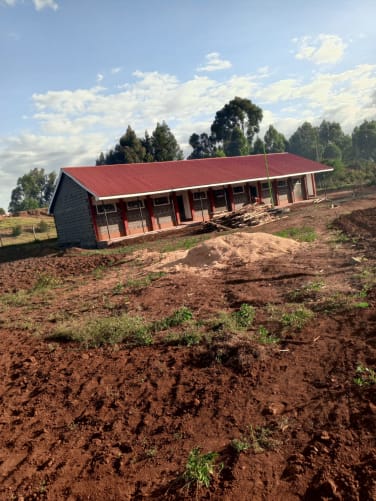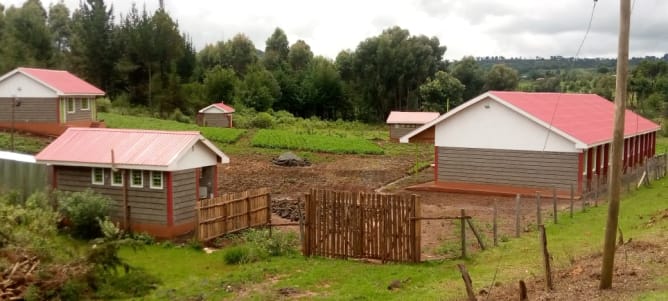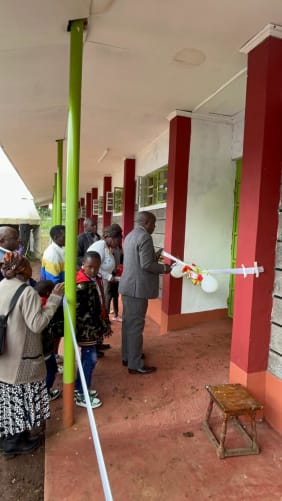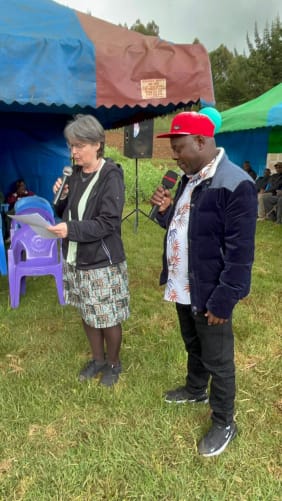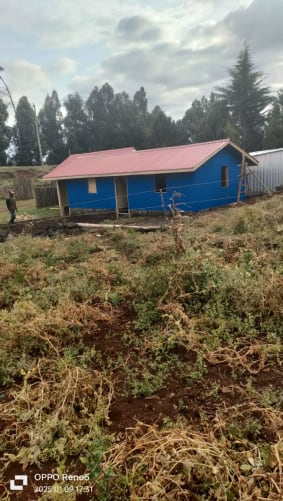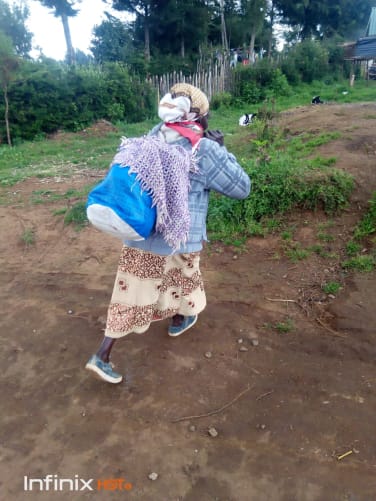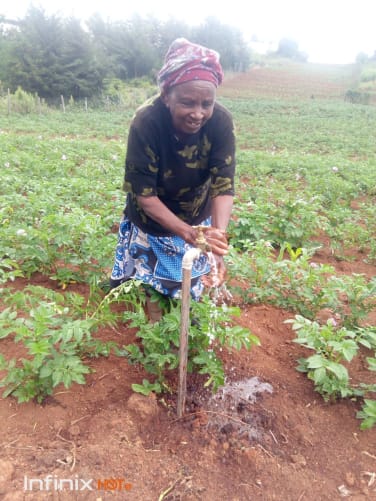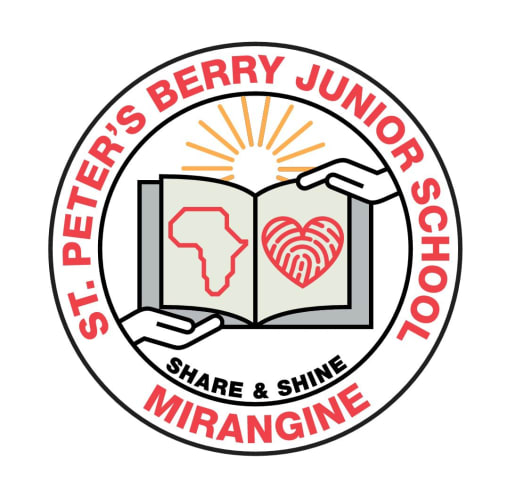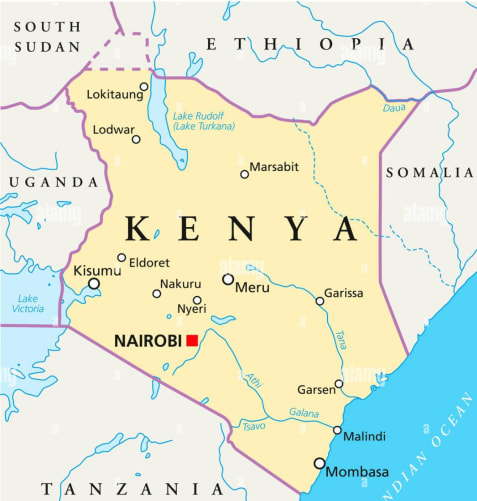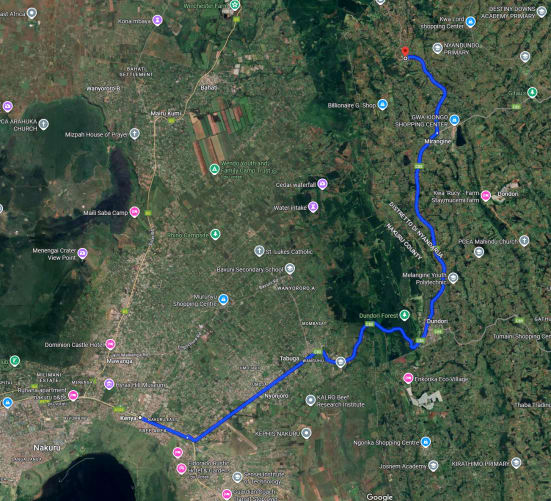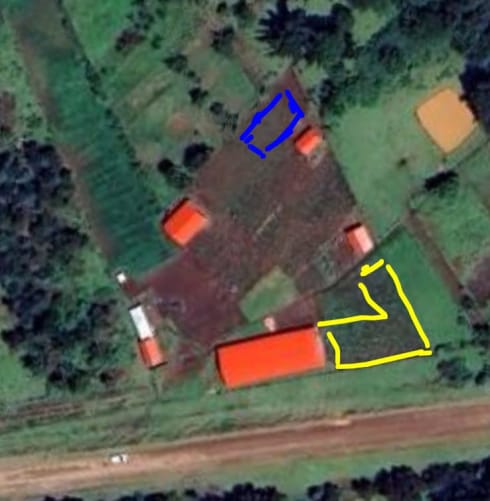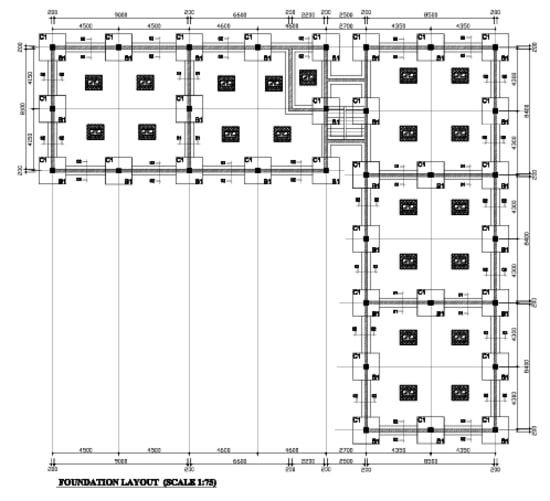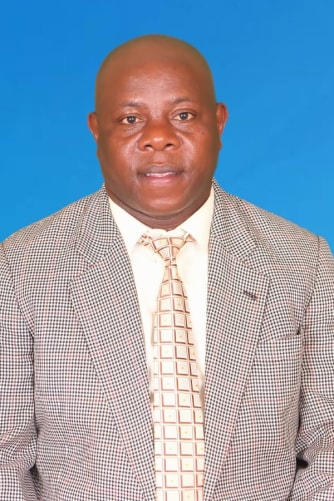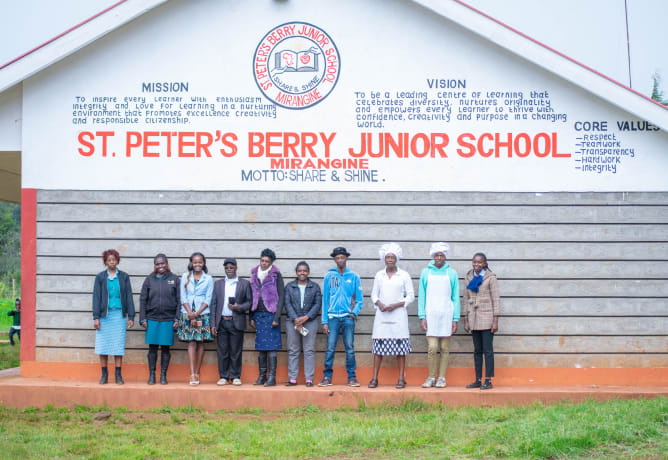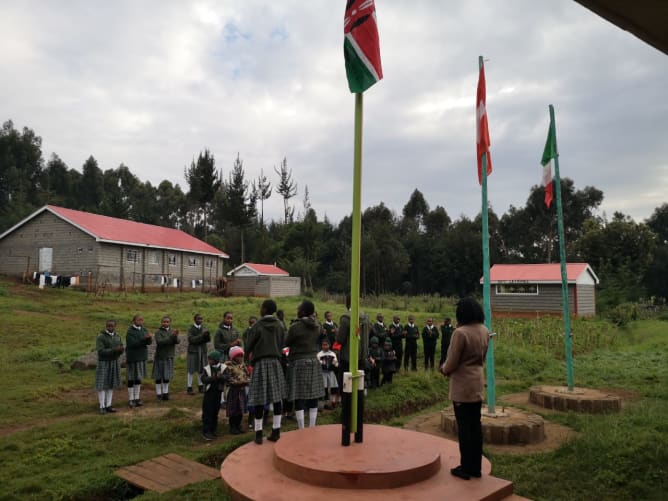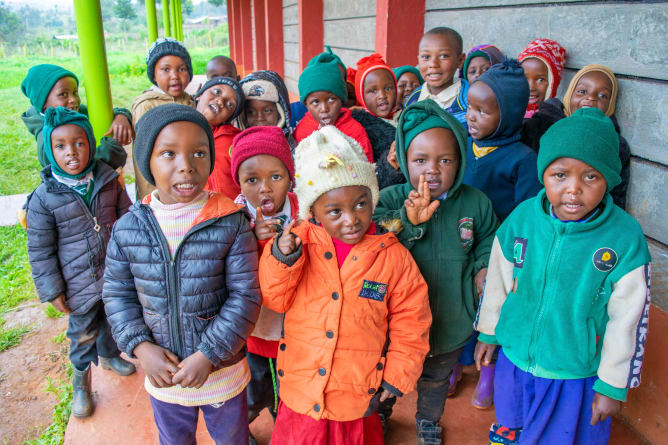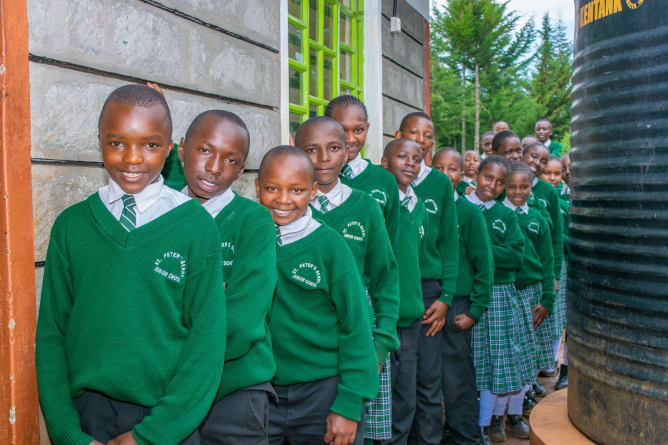Was ist CIEL Kenia?
Unser Verein CIEL Kenya (C=Teilen, I=Fussabdruck, E=Bildung, L=Licht) wurde 2022 gegründet.
Das Akronym CIEL steht für unsere Ziele:
- Teilen, weil es unser Wunsch ist, etwas mit denen zu teilen, die weniger Mittel haben, indem wir Fernunterricht für diejenigen fördern, die sonst keine Schule besuchen könnten;
- einen bleibenden Eindruck bei denen hinterlassen, die vor Ort Freiwilligenarbeit leisten möchten;
- Bildung, weil unser derzeitiges Hauptziel der Bau einer Schule ist, und
- Licht, weil wir davon überzeugt sind, dass jede kleine Geste Licht spendet, das den Weg von uns allen erhellen kann!
Aber wie kam es dazu, dass wir diesen Verein gegründet haben?
Alles begann 2017, als eine kenianische Nonne, Schwester Rose, die in der Schweiz und in Italien gelebt hatte, Elisa (jetzt Vorsitzende des Vereins) vorschlug, einen Freiwilligendienst in Kenia zu leisten. Die damals 17-jährige Elisa verbrachte drei Wochen in einer Schule in Kenia, in Dundori. Es war Liebe auf den ersten Blick, und dieser Reise folgten weitere, an denen ihre Familie, aber auch Freunde und Bekannte teilnahmen.
Im Jahr 2018 brach in einem Dorf in der Provinz Dundori ein Damm, wodurch viele Kinder zu Waisen wurden und auf tragische Weise ihre Eltern verloren. Wie kann man diesen Kindern helfen, eine Zukunft zu haben? Indem man ihnen die Möglichkeit bietet, zur Schule zu gehen.
So entstand die Idee von Elisas Familie in der Schweiz und Schwester Roses Familie in Kenia, eine Schule in dem sehr armen Dorf zu bauen, in dem Schwester Roses Familie lebt. Um dieses Projekt konkreter und realisierbarer zu machen, hat Elisa ihre Familie und einige Freunde mit einbezogen und den Verein CIEL Kenya gegründet. Derzeit besteht der Vorstand des Vereins aus Elisa, der Vorsitzenden, Maria, der Buchhalterin, und Saba, der für den technischen Bereich zuständig ist. Wir versuchen, Geld für Kenia zu sammeln; Schwester Rose und ihre Familie kümmern sich mit Hilfe verschiedener Mitarbeiter um die Umsetzung und Durchführung der Bauarbeiten und den Betrieb der Schule.
Aktualisierung zum Projekt
Nach der Gründung des Vereins haben wir uns sofort daran gemacht, durch die Organisation von thematischen Benefizessen, Märkten und Konzerten Spenden zu sammeln. Wir haben einen Online-Shop mit selbst hergestellten Produkten eröffnet, die wir grösstenteils aus Stoffen nähen, die wir während unserer Reisen in Kenia kaufen. Ausserdem zählen wir auf die ständige Unterstützung treuer Spender, Mitglieder des Vereins, die uns jedes Jahr grosszügig unterstützen.
Dank dieser Einnahmen konnten wir mit dem Bau der Schule beginnen. Im Juli 2022 fand die Grundsteinlegung statt. Zu dieser Zeit hatte die kenianische Regierung vorgeschrieben, dass Grundschulen und Mittelschulen an getrennten Orten untergebracht sein mussten. Es gab viele Grundschulen, aber nur wenige Mittelschulen. Aus diesem Grund haben wir mit der Idee begonnen, eine Mittelschule zu bauen, um einem tatsächlichen Bedarf gerecht zu werden.
Nach dem Wechsel des Präsidenten änderten sich auch die Bestimmungen: Es war nicht mehr notwendig, Grundschulkinder von Mittelschülern zu trennen. Da es in der Gegend sehr viele Kinder gibt, haben wir uns entschlossen, unser Projekt zu erweitern und alle Altersgruppen, von der Vorschule bis zur Mittelschule, aufzunehmen.
Nachdem wir im Dezember 2023 alle Baugenehmigungen erhalten hatten, begannen die Arbeiten, die dann im März 2024 abgeschlossen wurden. Es wurden drei Klassenzimmer, eine Küche mit Speisekammer und drei Badezimmer (eines für Jungen, eines für Mädchen und eines für das Personal) gebaut.
Im November 2024 fand die offizielle Einweihung und Segnung der Schule statt. Auf Wunsch der Dorfbewohner wurden anschliessend drei provisorische Klassenzimmer aus Blech gebaut, um auch die kleinsten Kinder aufnehmen zu können und ihnen lange Schulwege zu ersparen. Daher besteht nun die Notwendigkeit, Klassenzimmer für die Grundschule zu bauen. Im Januar 2025 wurde die Schule eröffnet: Derzeit besuchen 22 Kinder die drei Klassen der Mittelstufe und 22 Kinder die drei Klassen der Vorschule und des Kindergartens. Im ersten Halbjahr ist es uns auch gelungen, einen in zwei Teile geteilten Schlafsaal zu bauen, damit die Mittelstufenschüler in der Schule übernachten können.
Was ist das Besondere an dieser Schule? Die Schulgebühren sind sehr niedrig, damit möglichst viele Kinder, auch aus armen Familien, die Schule besuchen können. Ausserdem haben die Familien im Vergleich zu anderen Schulen die Möglichkeit, in Raten oder auch in Naturalien zu bezahlen (z. B. mit Mais, Kartoffeln, Polentamehl oder Holz oder anderen Dingen, die für die Schule nützlich sein können).
Wozu brauchen wir die 30'000 Franken?
Zusammen mit unseren Mitarbeitern in Kenia freuen wir uns sehr, dass wir die St. Peter’s Berry Junior School eröffnen konnten, und sind allen Unterstützern sehr dankbar.
Derzeit gibt es drei Mittelschulklassen mit 22 Schülern und drei Vorschulklassen («Play Group», «PP1» und «PP2») ebenfalls mit 22 Schülern. Das Personal umfasst einen Direktor, eine stellvertretende Direktorin, die auch als Lehrerin tätig ist, sechs weitere Lehrer, zwei Köche und einen Hausmeister.
Das Personal ist sehr kompetent und die Schule funktioniert gut, aber jeden Tag müssen unsere Mitarbeiter einen Weg finden, die Kosten der Schule (Gehälter, Verpflegung für die Schüler, Schulmaterial) zu decken. Aufgrund der begrenzten Anzahl von Schülern und der Tatsache, dass viele Familien Schwierigkeiten haben, das Schulgeld zu bezahlen, reichen die Einnahmen nicht aus. Wir sollten mehr Schüler und damit mehr Klassenzimmer haben, um sie aufzunehmen!
Deshalb brauchen wir Ihre Hilfe! 30’000.- Fr. ist der Mindestbetrag, der es uns ermöglicht, die Fundamente für 5 Klassenzimmer zu legen und mindestens ein vollständig fertiggestelltes Klassenzimmer zu bauen, um den Kindern, die den Kindergarten abschliessen, die Möglichkeit zu bieten, ihre Schulausbildung im Januar 2026 in derselben Einrichtung fortzusetzen.
Auch die Eltern wünschen sich dringend den Bau der Klassenzimmer, damit sie ihre Kinder selbst zur Schule bringen können, ohne einen Transport organisieren zu müssen. Sollten wir einen höheren Betrag zusammenbekommen, könnten wir auch weitere zusätzliche Klassenzimmer bauen, um eine grössere Anzahl von Kindern aufnehmen zu können.
Wir, die Mitglieder der Vereinigung CIEL Kenya, sowie alle unsere Mitarbeiter in Kenia sind für jeden Beitrag, den Sie uns spenden, sehr dankbar. «Was wir tun, ist nur ein Tropfen im Ozean, aber wenn dieser Tropfen nicht da wäre, würde er im Ozean fehlen» (Zitat von Mutter Teresa von Kalkutta). Vielen Dank, dass Sie uns helfen, unser Ziel zu erreichen!
